The upheaval in wholesale and franchise spearheaded by Tesco-Booker means a more abrasive trading landscape than ever before. So do the Big 30 wholesalers – and the supermarkets – have all their ducks in a row

Wholesale has never been the most headline-grabbing or most glamorous sector in the food and drink industry. But that all changed last January when the UK’s biggest retailer announced it was buying the UK’s biggest wholesaler for the princely sum of £3.7bn.
Since news of Tesco’s bid for Booker broke, the pace of change in wholesale has been incredible. Now, rather than simply traditional wholesale operators looking to battle with each other, the sector has attracted serious interest from not just Tesco but also Sainsbury’s, Morrisons and the Co-op.
Data Box
Table: The Big 30
These big grocery retailers have swooped in and effectively annexed vast chunks of the market. It would be easy to see them as defensive moves triggered by Tesco-Booker but, as growth slowed in grocery and the space race came to an end, retailers were casting their nets to find new channels some time before Dave Lewis and Charles Wilson dropped their bombshell, with wholesale the obvious choice, particularly for Morrisons and the Co-op.
If McColl’s tieup with Morrisons was partly triggered by the destabilisation of its two suppliers following the Tesco-Booker announcement, the same cannot be said of either its high-profile deal to supply Amazon nor its contracts with Rontec and more recently Sandpiper CI, which are expected to take Morrisons’ wholesale operation beyond £700m by the end of this year, with a target of £1bn within two years.
The Co-op’s £143m takeover of Nisa (assuming it gets the necessary CMA approval), and in April the start of a new and exclusive supply agreement to service around 2,000 Costcutter stores also builds on its credentials as a wholesaler for the last 170 years to other societies.
Sainsbury’s, on the other hand, has no obvious form in wholesale and perhaps not surprisingly it has been less successful in its efforts to secure a piece of the wholesale pie. It walked away from plans to buy Nisa in 2017, despite originally being the buying group’s preferred bidder, and just this month it emerged it was pulling the plug on franchise plans with Euro Garages. However what the Sainsbury’s Euro Garages deal and the similarly aborted tie-up between Morrisons and Motor Fuel Group show is that while the big retailers have the hunger to get into new areas of supply, it is never just as simple as sticking a famous name over the door and waiting for the money to come rolling in.
’We expect the uncertainty caused by Brexit to continue to influence consumer sentiment and investment confidence’
“Initial trials may have been encouraging but without doing it at scale it isn’t going to work,” one senior wholesale source told The Grocer last week. “It needs to be mutually beneficial. What they can find is that sales can go up but not necessarily profit with it. It depends on the mix.
“Also there’s a lot of cost hidden in making sure the logistics are showing up on time. Morrisons struggled with that at MFG. My understanding is Sainsbury’s had logistics problems too. They weren’t geared up for it. Soon after, everyone is talking about the margin.”
Still, no-one in wholesale is complacent about such failures, as the multiples have shown a willingness to experiment and nothing that may once have been seem as purely the territory of wholesalers appears off limits.
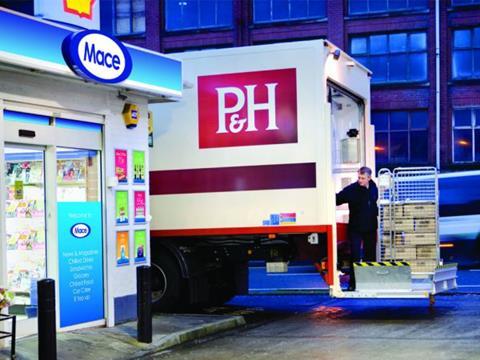
Casualty #1: Palmer & Harvey
There was one notable absentee from this year’s Big 30 list - Palmer & Harvey. To say P&H was one of wholesale’s big guns would be an understatement. The Hove-based wholesaler topped the Big 30 list for 10 years until being pushed into second spot by Booker in 2015.
Which is why its collapse in November, while widely predicted, was still one of the most shocking events in the sector’s history.
The end came abruptly, with administrators from PwC called in on 28 November and customers told the deliveries on that day were the last. And though some assets have been sold (notably the Central Convenience operation to Conviviality) an estimated 3,300 staff have been made redundant.
The first sign of trouble came when its financiers - a mix of banks and tobacco suppliers - got the jitters after Tesco, which accounted for around 40% of P&H’s sales, announced plans to merge with Booker, its biggest rival.
Despite securing a three-year extension to its Tesco contract, which allowed it to complete a refinancing in April, it was soon back in crisis mode as it needed to find extra capital to pay back further borrowings. Amid mounting cashflow problems, increasingly poor service levels tested the patience of its customers to the limit.
By the time it entered rescue talks with global private equity giant Carlyle Group in October, it had lost its lucrative McColl’s contract and weeks later Costcutter served notice that it was pulling the plug, too.
All of these events led to P&H’s ultimate downfall. But, equally, years of mismanagement had sown the seeds. Yes, it can be looked upon as the first victim of the game-changing Tesco-Booker deal, but there is no doubting P&H was a unique case with its own unique set of problems, including heavy indebtedness following its MBO in 2008, loss-making contracts, ineffective buycos, and an apparent willingness to pay substantial dividends to its directors despite its worsening financial position.
In the short term the fallout has affected a number of retailers, including Tesco. In the mid-term rival wholesalers will get to fight over a decent chunk of wholesale business. The longer term impact is much harder to gauge just yet, with Tesco-Booker primed to secure the lion’s share.
“We are still working through the fallout,” says FWD CEO James Bielby. “It has radically changed the landscape in ways we would never have anticipated. The traditional wholesale market is facing immense challenge and change. They are already under pressure due to rising costs and rising food price inflation and if these new entrants can come in and use their buying power the sector is only going to get more competitive.”
The Co-op is certainly confident it can make a success of wholesale.
“Retail space for c-stores is at a premium because of increased competition while the food market is increasingly competitive, with consolidation among major competitors and new entrants such as AmazonFresh. This is a great opportunity to strengthen the position of the Co-op in convenience retailing,” says Jon Wormald, director of corporate development at the Co-op.
“Expanding our presence in the wholesale and franchise market has been a strategic intention of Co-op for some time. We believe Nisa represents the ideal platform for us to do so and continue to grow. Alongside our successful franchise trial with MRH and wholesale pilot with McColl’s, we believe we understand what it takes to be successful in this area.
“Our offer to buy Nisa’s wholesale business is another way in which we’re driving our business forward; expanding our reach into new communities, increasing our buying power to improve prices and promotions, and getting more Co-op products into more baskets.”
Can traditional players survive?
So, with competition greater than at any other time in the sector’s history, can the traditional wholesaler still thrive, especially when you add in factors like Brexit and the increasing cost of doing business driven by the national living wage and rising fuel costs?
The good news is that of the 30 companies on our list, two-thirds improved sales and profits, according the their most recent accounts.
Overall total sales rose 6.9% to £26.2bn while collectively pre-tax profits jumped by 3.1% to £509m. But of course, you need only look at the collapse of P&H in November to see just how difficult trading can be for wholesalers right now.
The absence of P&H in this year’s ranking has also had a significant impact on the Big 30’s profitability and margins. Last year P&H was no2 with a turnover of £4.5bn but making a pre-tax loss of £17.3m, which meant overall profit margins for the Big 30 were a wafer thin 1.5%. Without that huge amount of loss-making sales included, this year’s overall profit margin has nudged up to a more healthy looking 2.1% (Brakes figures are also not included in this calculation.)
P&H’s circumstances were unique and its troubles well known for a number of years but it was effectively the first victim of the entry of the major mults into wholesale.
Bestway MD Martin Race admits that like most wholesalers he “didn’t see Tesco-Booker coming” and on P&H while he “had known it had been struggling for a long time, I don’t think anyone actually believed it would go bust”.
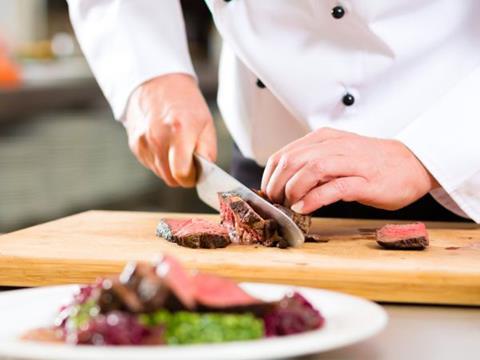
Casualty #2: Russell Hume
Almost exactly five years after the grocery sector was rocked by the Horsegate scandal, the meat industry has once again been under investigation, amid concerns over the integrity of its supply chain, and this time it’s meat wholesalers who have been thrown into the spotlight.
An apparently random inspection at meat wholesaler Russell Hume in early January identified issues with procedures and processes around use-by dates labelling. Stopping production at all its six sites last month, supply to the likes of Wetherspoon, Jamie’s Italian, Martons and Greene King were immediately stopped and this week, the £130m sales Derby-based wholesaler cited the ongoing FSA and Food Standards Scotland enforcement action against the company as the reason for the “heart-breaking” decision to call in KPMG as administrators, with the loss of 300 jobs.
Russell Hume went down fighting, and also denied allegations from a whistleblower, aired on ITV last week, that the company had sold foreign meat as British. The FSA’s investigation is, however, ongoing, with interviews being conducted under caution.
But Russell Hume is not the only wholesaler who’s been dragged into the scandal. The FSA’s discoveries have also led to product withdrawals at Fairfax Meadow and DB Foods.
Fairfax Meadow, which is currently number 25 on the Big 30 list, with sales of £163.1m, voluntarily withdrew some of its meat products from foodservice customers after unannounced inspections by the FSA on 8 February highlighted “concerns about the procedures and processes the company had been using to apply use-by dates on some of its products”.
Its review of Fairfax Meadow is ongoing “but the company has acted properly and proportionately in swiftly withdrawing potentially affected products from the market,” said the FSA.
Fairfax Meadow MD Penny Tomlinson added that the company had a “relentless focus on safety, hygiene and quality” and its voluntary action “reflects our desire to ensure our practices remain industry-leading and follows a dialogue with the FSA. It is being undertaken as a precautionary measure and has been promptly implemented.”
In the last year, Bestway had hoped to play a bigger role in sector consolidation. It actually made the first bid for Nisa, but the buying group’s board opted not to pursue it further or recommend it to members. Even at the last minute, it was hopeful Nisa members would reject the Co-op bid and ask the board to instead consider a deal with Bestway. While some high-profile Nisa members appeared to favour this approach, the majority plumped for the Co-op and the rest is history. The Co-op also beat Bestway to the punch when it came to the Costcutter deal.
Race says Bestway would still be keen to “look at opportunities that come our way” but “it has to stack up in terms of price”. Since Tesco-Booker, Race says the multiples that companies are asking for have gone through the roof.
He adds that after P&H’s demise there is more business out there to be competed for and the key is increasing efficiency, particularly when mixing with the big retailers. Morrisons’ agreement to supply McColl’s, for example, is thought to be on terms its previous suppliers Nisa and P&H simply could not match. “Obviously some of these businesses have huge buying power and so any contract has to make economic sense for us.”
‘Don’t compromise the wholesale sector’
Many traditional wholesalers are now looking to their suppliers to show support for the wholesale channel, particularly when the Tesco Booker deal is completed.
“The Tesco Booker merger is a big challenge for us,” admits Dhamecha Cash & Carry MD Pradip Dhamecha. “Suppliers will need to ensure they don’t compromise the wholesale sector. I think we can overcome the challenges posed by the merged entity but it is very important from the suppliers’ perspective they treat the wholesale sector with respect because we are a great route to market for them. If Booker was to have the preferential terms that Tesco enjoys, it would be compromised for sure.”
This is also a concern for Parfetts MD Greg Suszczenia, who was disappointed by Walkers teaming up with Booker as it relaunched its van sales operations using the wholesaler’s warehousing and depot services. “Is this a glimpse of a future where changes in wholesale will benefit the dominant player, or just a short-sighted solution to an immediate problem?” he asks. “You’ve still got countless wholesalers trading with Walkers with a good relationship and then they’ve done this. What does it say to us as loyal customers? It says their preferred wholesaler is Booker.”
Naturally, Booker CEO Charles Wilson is more focused on delivering for his customers and sees the Tesco deal as something that will help him do this. “We can help our customers further by improving choice, quality, prices and service through working with the team at Tesco,” he says.
Wilson feels independent customers in particular are continuing to be squeezed, so serving these customers better is the key challenge for wholesalers this year.
Annual increases in the national living wage are hurting both wholesalers and their customers and there is little doubt now that wider economic turmoil as a result of the UK’s decision to leave the EU is having a tangible impact on the sector.
“It’s quite fragile,” says HT & Co Drinks sales director Sanjay Thakrar. “With Brexit there’s lots of uncertainty and the exchange rate’s affecting core prices. It makes me apprehensive. Before Brexit we opened two depots and were looking at more but put that on hold to get some clarity of where we are.”
The challenges of Brexit are not unique to wholesale, says Bielby but they are very real. “Our sector needs a comprehensive trade deal just like any other.”
Still profitable?
Though 2017 highlighted the many challenges of wholesale, with the spectacular demise of Palmer & Harvey, our Big 30 survey proves that many wholesalers are not only continuing to grow sales in the current climate, but achieving sizeable profits too. With a year-on-year profit increase of 301% to £2m fast-growing drinks wholesaler HT Drinks (pictured) achieved the biggest boost to its bottom line.
Founded 20 years ago the business tripled its depot numbers in the past 12 months, with new outlets in Brighton and Birmingham as it expands its reach beyond London. It wasn’t the only wholesaler to see substantial profit increases either, with a growth in pre-tax profits of 131% at Crown Crest Group, 75% at East End Foods and 67% at Costco’s UK arm.
Spar UK MD Debbie Robinson also cites Brexit as a major area of concern. “The three main challenges we see facing convenience retail businesses in the UK are the national living wage, the rise in business rates and the uncertainty of Brexit,” she says. “If we could ask the government to do one thing to help our businesses, we would ask them if they truly understand the impact of business rates increases on independent convenience retailing.”
Despite the growth of food-to-go, foodservice is likely to be impacted by Brexit too, in terms of consumer confidence about how often people eat out of home and also the proportionally high numbers of EU workers employed. Both Brakes and Bidfood say Brexit is the biggest threat to their business going forward.
“The main challenges will, of course, be the unknowns around Brexit from labour to cost of goods,” says a Brakes spokeswoman. “We are planning for a range of scenarios to ensure Brakes is best placed to help customers meet the challenges and opportunities.”
Bidfood group sales and marketing director Andrew Kemp adds: “We expect the uncertainty caused by Brexit to continue to influence consumer sentiment, investment confidence and economic dynamics in the UK, as well as cause adverse exchange rates, a key factor in driving food inflation. Uncertainty also doesn’t help the skills gap in hospitality and foodservice.
“We’ll continue working to minimise costs for our customers by challenging, delaying and reducing the impact of inflationary pressures.”
Further consolidation
So what’s next for wholesale? The likelihood is further consolidation. One senior industry source expects traditional wholesalers will look at more ways they can work together to become better equipped to do battle with the new entrants. Bestway had been linked to a move for AF Blakemore but it looks like no agreement could be reached as Blakemore was only willing to divest its C&C ops rather than the delivered Spar business - which Bestway was most interested in.
Further developments among the wholesale buying groups are likely now. Sources suggest confectionery and snacks group Sugro could tie up more closely with Today’s. The two groups already work together on certain back office services such as printing and last year Sugro’s biggest member Kitwave joined Today’s.
It will be fascinating to see the impact of the Co-op’s acquisition of Nisa and in particular how it can manage its fiercely independent and sometime fractious membership. But really all eyes will be on Tesco and Booker. The fact Charles Wilson is set to run the UK operations of both retail and wholesale for the merged business should leave no one in wholesale in any doubt of the buying synergies he will be hoping to achieve for the combined entity.
This time last year many of the cards were up in the air. Now most of them have been dealt.
Let the games begin.







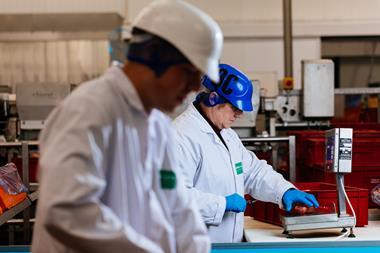
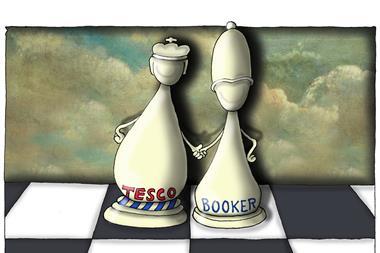
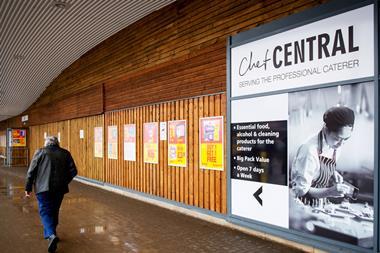
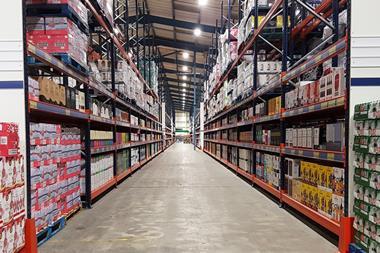
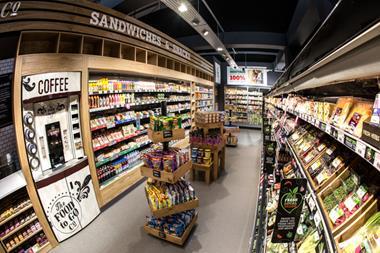
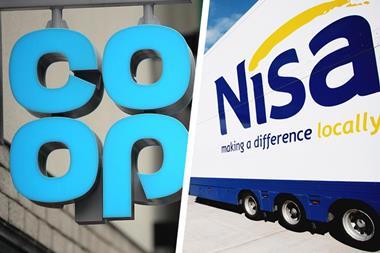






No comments yet